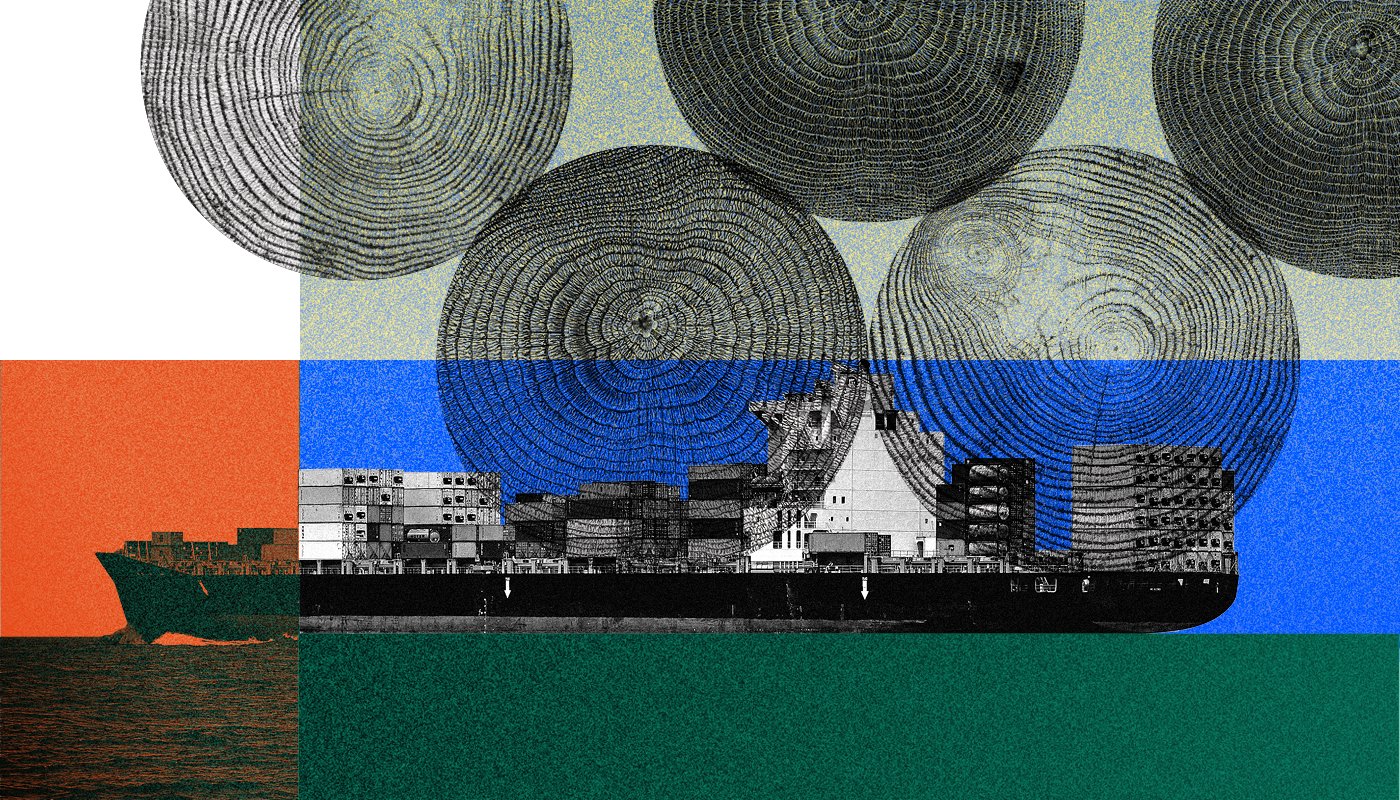In May this year, Brazil’s Federal Police launched Operation Akuanduba to investigate suspicions of irregularities in the export of timber from the Amazon rainforest. The operation looked into the environment minister at the time, Ricardo Salles, and Eduardo Bim, the head of federal environmental protection agency, IBAMA, as well as other public servants and businesspeople from the logging industry. Salles ended up resigning shortly after, while Bim was suspended from his post for 90 days.
Now, six months after the launch of Operation Akuanduba, Brazilian investigative journalism outlet Agência Pública has uncovered new details about the timber exports and the destination countries and companies that received the products over the course of the 15 months that an IBAMA instruction at the heart of the investigation was in force.
The instruction, issued in February 2020, loosened regulations on Brazilian timber exports and rendered a previous instruction, from 2011, obsolete. The 2011 instruction required companies to obtain specific authorization from IBAMA for timber exports and sought to introduce more rigorous export control procedures, such as the use of sampling inspection of shipments.
The new instruction was suspended in May this year by Brazil’s Supreme Federal Court. Explaining the decision, Justice Alexandre de Moraes said investigations pointed toward “the existence of a major scheme facilitating the smuggling of rainforest products.” Moraes also noted that Salles and Bim are suspected of being involved in the scheme.
Others targeted by the investigation include IBAMA officials appointed by Salles, as well as companies in the timber industry, in particular those linked to the Association of the Timber Exporting Industries of the State of Pará (Aimex). Pará, in northern Brazil, is one of the country’s nine Amazonian states and among the worst-affected by illegal logging.
12,500 metric tons of threatened species timber
The unprecedented investigation by Agência Pública revealed that the logging companies associated with Aimex alone exported 174,000 metric tons of wood since the government of President Jair Bolsonaro came to power at the start of 2019. Of these exports, 57% took place during the period in which IBAMA’s new instruction was in force, amounting to almost 100,000 metric tons.
The investigation also found that during this period, between February 2020 and May 2021, these companies traded at least 12,500 metric tons of wood from rainforest species considered threatened by the Brazilian Forestry Service (SFB).
The data was obtained as part of a collaboration between Agência Pública and the Latin American Center for Investigative Journalism (CLIP) from the platform Panjiva, a database for business information and market intelligence run by U.S.-based S&P Global.
According to data from the platform, the volume of wood sold was greater in the 15 months during which IBAMA instruction was in effect than between 2016 and 2019, when 11,000 metric tons of wood from threatened species were traded by these companies.
The species recorded in the Panjiva database, despite being classified as “at risk” by the Brazilian Forestry Service, can be legally traded. To legally extract timber in Brazil, a forestry management plan has to be approved by the secretary of the environment of the state where the logging occurs.
Using the database consulted in the investigation, however, it has not been possible to identify the management plans linked to the timber shipments in question. After the launch of the police’s operation, Aimex published a statement in which it maintained that the timber was legally sourced.
Timber destined for U.S. and elsewhere
The United States, France, Japan, Germany and Belgium were the countries that received the highest number of timber shipments of tree species considered threatened by the Brazilian Forestry Service during the period of February 2020 to May 2021.
The most common wood types among these shipments were angelim-pedra, itaúba, garapeira and cerejeira, all considered vulnerable by the Brazilian Forestry Service and used in the construction and shipbuilding industries because of their strength and durability.
During this time, just six member companies of Aimex, the Pará state logging association, were responsible for 78.5% of shipments of species classified as threatened, according to data analysis conducted by Agência Pública. Among companies with the highest levels of exports were Ebata Produtos Florestais Ltda and Tradelink, both implicated in the Federal Police’s investigation.
The two companies have similar track records: both have been fined for environmental infractions, both have been subject to socioenvironmental lawsuits in federal and state courts, and both have been involved in socioenvironmental conflicts.
Ebata did not respond to requests for comment by the time this report was published. Tradelink said in a statement that all of its operations “were legal and followed IBAMA’s rules and the environmental agency’s interpretation of the relevant legislation.” The company also said that the police’s Operation Akuanduba “is [just] an investigation, and none of the allegations have been proved.”
Aimex has criticized the judicial decisions and the work of the Federal Police under the scope of Operation Akaunduba. In a public statement, the association said that it “defended the interests of its associates and the forestry sector in a firm but completely honest, legitimate and democratic way.” Aimex did not respond to Agência Pública’s requests for comment.



 PayPal
PayPal 


















